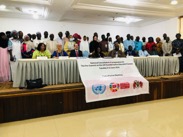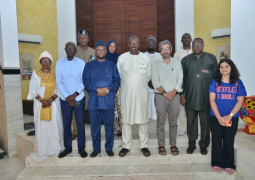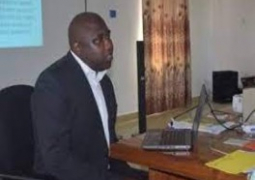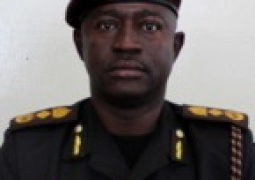
Deliberating at the event, Hon. Claudia Cole, minister of Basic and Secondary Education, said over the years, education has faced lots of challenges particularly in the low-income countries. She said the past few years has presented serious crisis for education particularly with the advent of COVID-19 pandemic.
Minister Cole added that the serenity of the global learning crisis and its ramification on education is depriving hundreds of millions of children, young people and adults of their right to quality education, leaving many of the education related targets of the sustainable development goals off track.
Moreover, she noted that the advent of COVID not only resulted in global crisis for education but also provided impetus for global education community to reimagine and recalibrate appropriate response strategies during emergencies.
However, she reiterated that the current shape and form of learning has witnessed a huge transformation as a result of global education emergencies that called for a rethink in the mode of education service delivery as well as education financing.
In addition, she revealed that an inter-agency network of UN agencies comprising UNESCO, UNICEF and World Bank emphasised the need for global partnership for Education Fund and promote access to remote and digital learning as well as skills to embrace the new education trajectories.
Considering the COVID crisis with its challenges, the MoBSE boss said there is a need to put in place appropriate and relevant strategies and infrastructure for learning during crisis and emergencies, review of curriculum to meet the needs of children and youth through the development of appropriate skills and technology.
Hon. Cole further disclosed that her ministry is currently reviewing its existing curriculum with a view to promoting agriculture and skills development.
She posited that her ministry is aware of the importance of promoting excellence in skills education as a main driver of addressing unemployment and underemployment.
The UNICEF country rep, Gordon Jonathan Lewis, said the UN Secretary General as part of his primary agenda has identified transforming education potentially the biggest challenge of all. The secretary general is very much concerned with those areas that are not moving fast enough when it comes to meeting the sustainable development goals.
He continued that COVID-19 has set many obstacles to education and also has deepened and accelerated a number of issues that many countries experienced with structural gaps and deficiencies in the education sector.
“The discussions at the summit in September would include; how can our schools be more inclusive; how they can be safer; how they can be healthier for our children; how can we impact learning skills for life work and sustainable development; how can we mobilise the power of digital and remote learning as well as financing for education among others,” he disclosed.
To ensure a successful summit, member states were tasked to convene national consultative meetings with the aim to develop a shared vision of the futures of education and to strengthen political and public commitment, align priority innovative actions across constituencies, and mobilise collective capacity to deliver the vision between now and 2030.
Read Other Articles In Headlines





